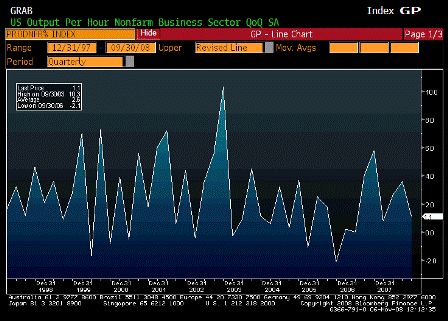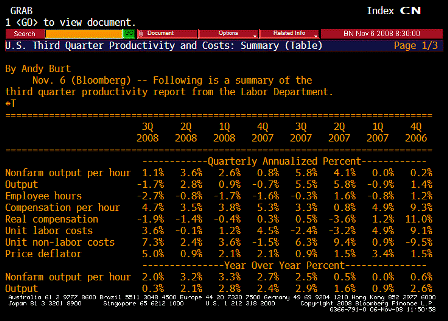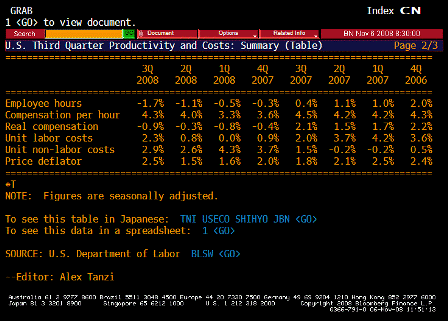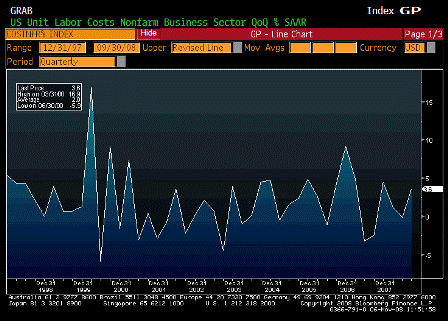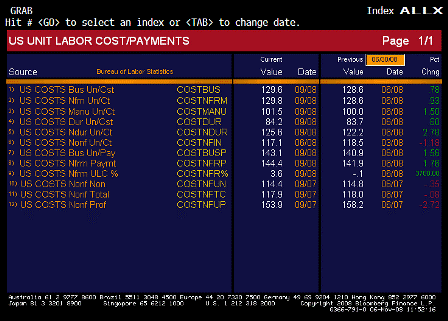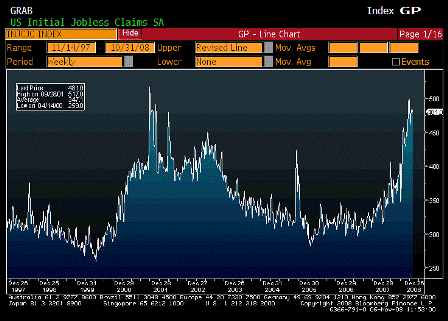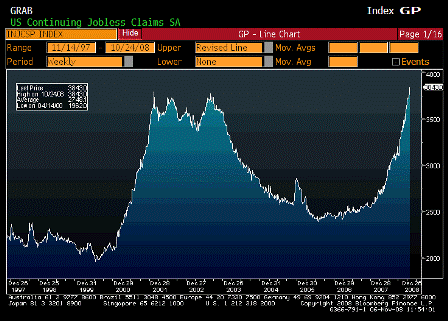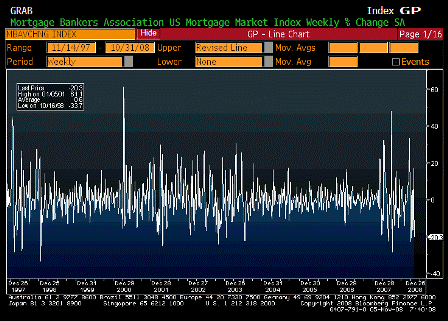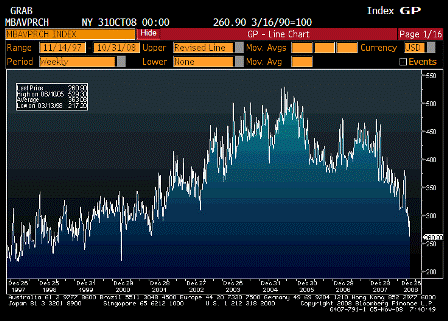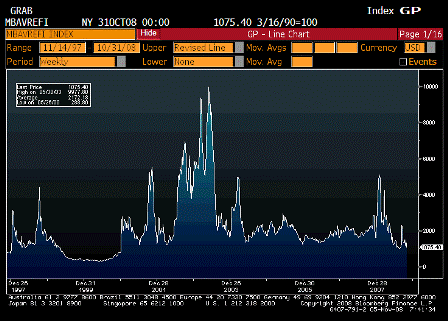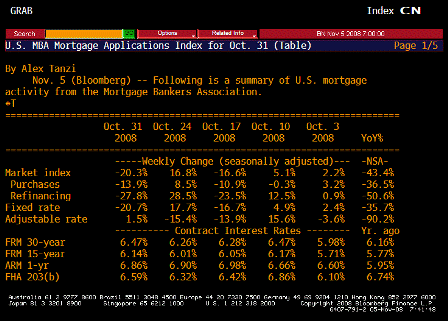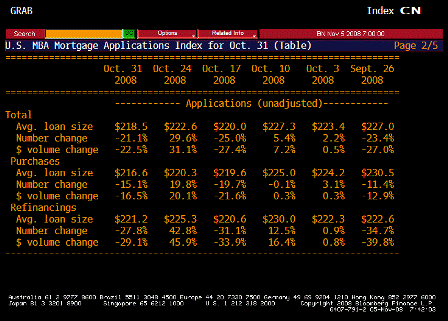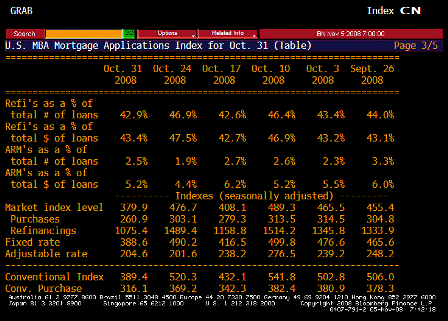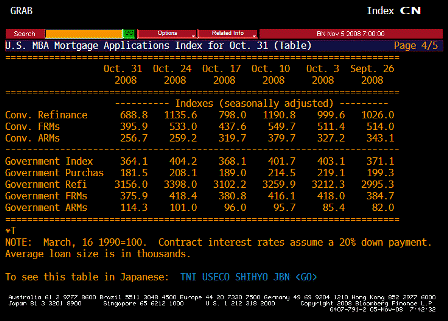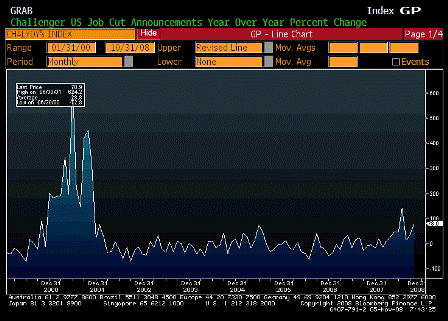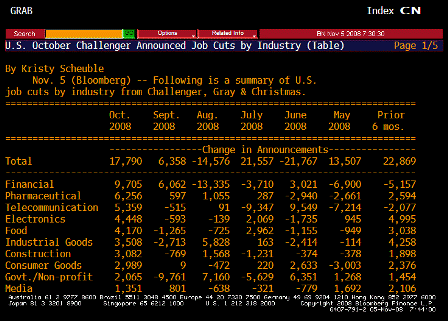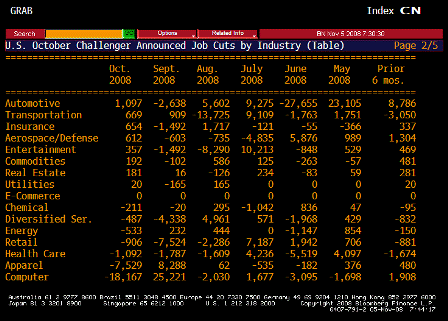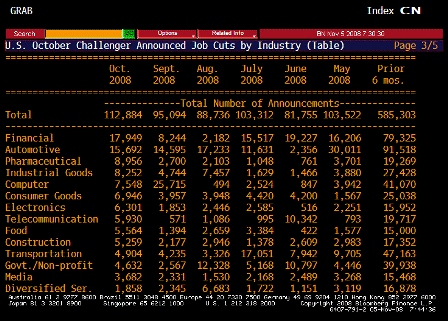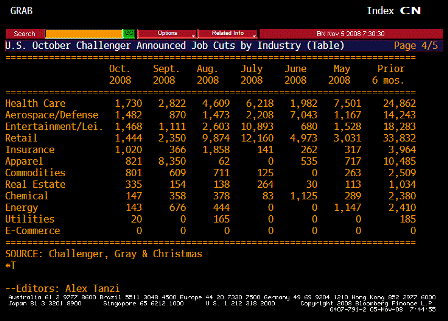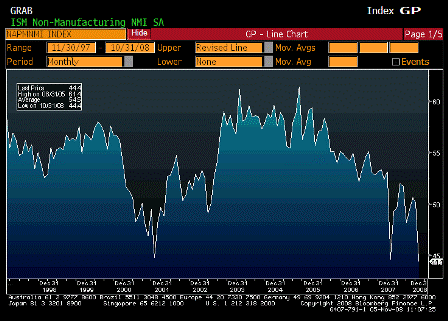[Skip to the end]
(email exchange)
Yes, a very obvious move for anyone with any sense of logic.
Again, we see continued evidence that the higher ups do not understand their own monetary operations.
Some of the remaining issues:
The TAF should at a minimum be unlimited and offered at a fixed rate, and the collateral requirements can be expanded to any bank legal assets.
The Fed should get Congressional approval to expand their treasury lending facility and lend any security in unlimited quantities at an overnight rate at a small
spread below their target Fed funds rate.
The Fed should cut off the (unlimited) swap lines to foreign central banks before it’s too late.
>
> On Wed, Nov 5, 2008 at 11:43 PM, Scott wrote:
>
Federal Reserve Press Release
Release Date: November 5, 2008
For release at 10:00 a.m. EST
The Federal Reserve Board on Wednesday announced that it will alter the formulas used to determine the interest rates paid to depository institutions on required reserve balances and excess reserve balances.
Previously, the rate on required reserve balances had been set at the average target federal funds rate established by the Federal Open Market Committee (FOMC) over a reserves maintenance period minus 10 basis points. The rate on excess balances had been set as the lowest federal funds rate target in effect during a reserve maintenance period minus 35 basis points. Under the new formulas, the rate on required reserve balances will be set equal to the average target federal funds rate over the reserve maintenance period. The rate on excess balances will be set equal to the lowest FOMC target rate in effect during the reserve maintenance period. These changes will become effective for the maintenance periods beginning Thursday, November 6.
The Board judged that these changes would help foster trading in the funds market at rates closer to the FOMC’s target federal funds rate.
[top]

